Docx files for personal book: Verbum 9 part 1; Verbum 9 part 2; Verbum 9 part 3; Verbum 9 part 4; Verbum 9 part 5; Verbum 9 part 6; How to use the Verbum Lectionary and Missal; Verbum 8 tips 1-30; Verbum 8 tips 31-49
Reading lists: Catholic Bible Interpretation
Please be generous with your additional details, corrections, suggestions, and other feedback. This is being built in a .docx file for a PBB which will be shared periodically.
Previous post: Aside: Forum tidbits 2 Next post: Aside: Practice searches 2
Aside: Practice searches
Because some of these search require serious thought, I am offering fewer searches at a time. Remember that the searches can also be run through the Command Box or Inline Search.
How do I find occurrences where lemma:αγων occurs with g:διὰ?
Remember that you can enter a Greek word transliterated into the Latin (Roman) alphabet. Both the word form and the lemma form are then available for selection.
Search arguments (3 options):
- · <Lemma = lbs/el/ἀγών> BEFORE 1 WORD διὰ (for a morphology search)
- <Lemma = lbs/el/ἀγών> BEFORE 1 WORDS <Lemma = lbs/el/διά> (here bother terms are in lemma form; for a morphology search)
- (([field bible, content] <Lemma = lbs/el/ἀγών>) BEFORE 1 WORDS ([field bible, content] <Lemma = lbs/el/διά>)) (here it is set to run as a Bible search)
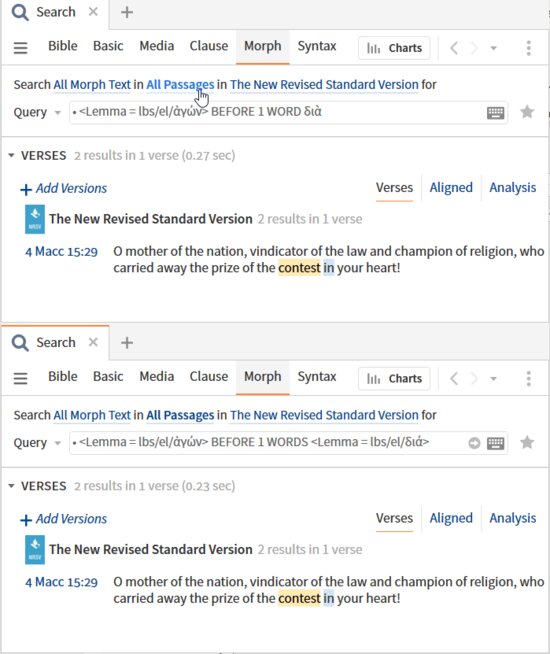
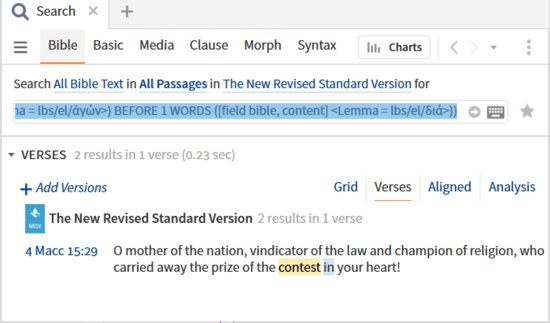
How do I find all occurrences of נאם יהוה (announcement of YHWH)?
A solution from Mark Barnes:[1]
Remember you’ll want a phrase search because a proximity search will count each word separately, inflating your count.
Search arguments:
- lemma:נְאֻם BEFORE 4 CHARS lemma:יהוה (note the count is high)
- "lemma:נְאֻם lemma:יהוה" (preferred form)
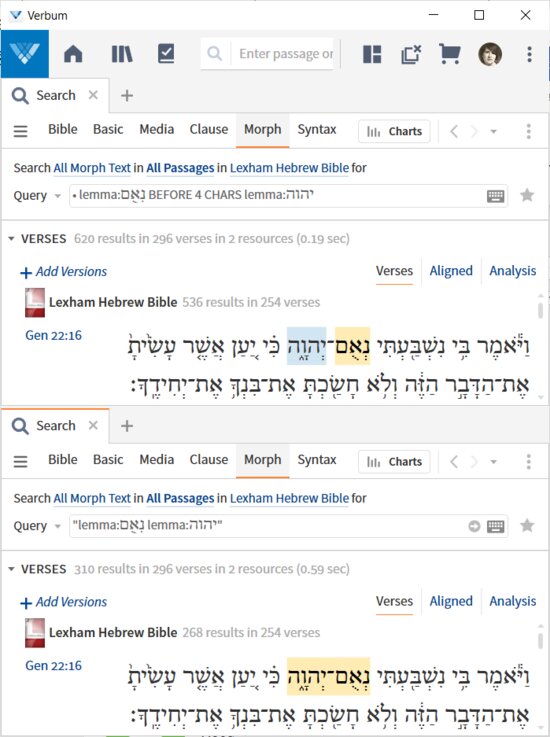
How do I search for a noun with particular suffixes (e.g. פַּנֶה "face" + 1cs suffix אֲנִי -> "my face")?
A solution from Dave Hooton:[2]
There are two ways, because not all morphologies cater for suffixes i.e. Noun+pronomial suffix. Use Morph Search.
In Lexham Hebrew Bible try lemma:פָּנֶה BEFORE 1 CHAR lemma:אֲנִי@R?1?S
In BHW 4.18 try lemma:פָּנֶה@n????+S1?s
How to contain that to a specific meaning, "my face" is another matter
x BEFORE 1 CHAR y constrains y to be a suffix, as a 2 CHAR separation would allow a space between the words i.e. "x y" instead of "xy"
lemma:פָּנֶה@n????+S1?s allows you to specify the noun, whilst the pronomial suffix S1?s is first person, singular, same as the pronoun for LHB.
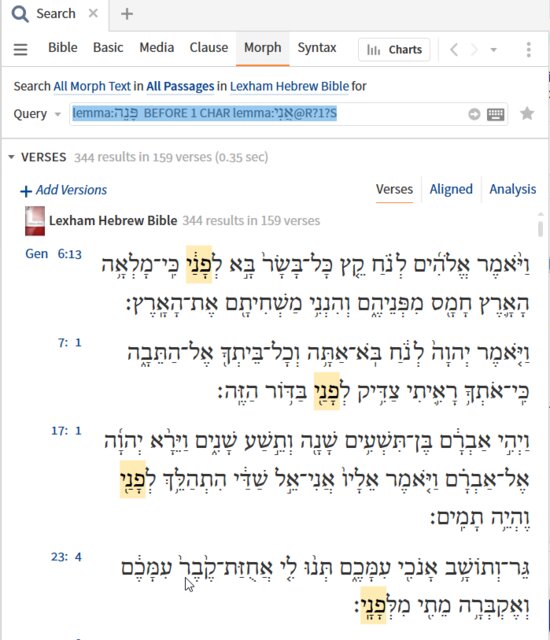
How do I search for attributive adjectives preceded by a definite article?
A solution from Dave Hooton:[3]
A Morph Search for @D BEFORE 1 word @J will work provided you have a Greek bible with morphology like NA27; @D is the article (for more explanation see wiki http://wiki.logos.com/Morphological_Search). For the "Attributive" use in relation to nouns (@N) you can be more precise eg.
@N BEFORE 1 word @D BEFORE 1 word @J
or
@D BEFORE 1 word @J BEFORE 1 word @N
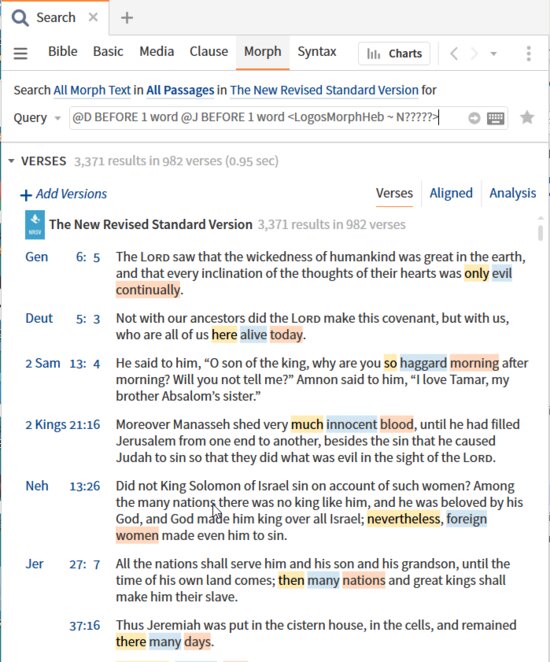
[1] Morph search - double verse results (count) (This before that) original language - Faithlife Forums (logos.com) 6/1/2021 3:56 PM
[2] Hebrew morph search, nouns with suffixes - Faithlife Forums (logos.com) accessed 6/1/2021 3:54 PM
[3] Morph Search - Faithlife Forums (logos.com) accessed 6/1/2021 4:27 PM